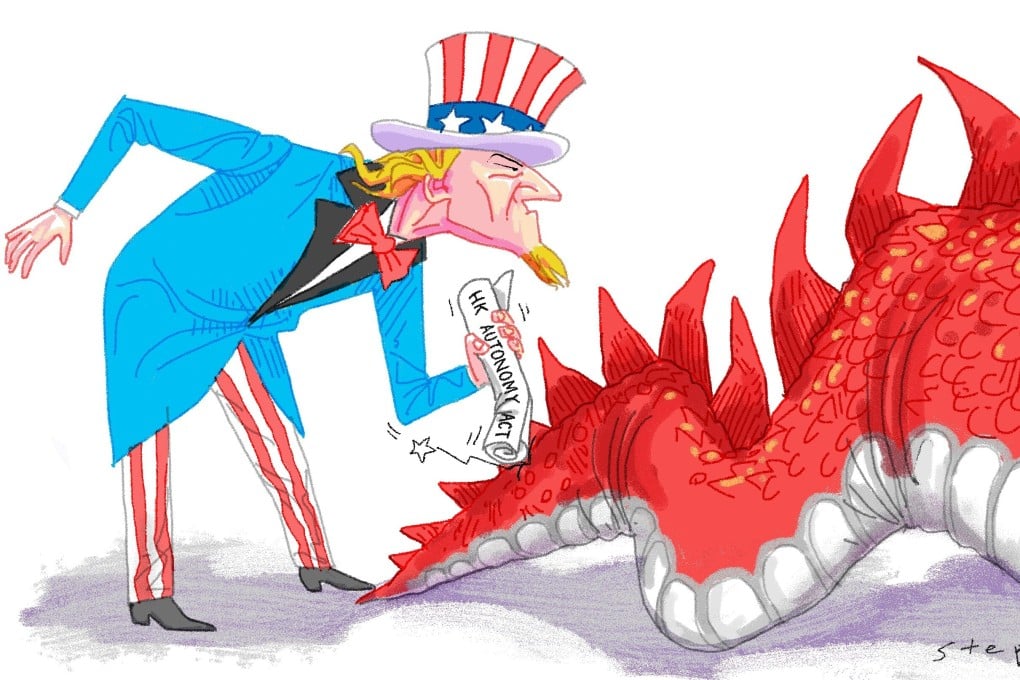Opinion | US sanctions and Hong Kong Autonomy Act are empty gestures that show a failure to understand
- The sanctions have no real bite and the bill does little other than show commitment to a ‘hard’ policy on China ahead of House elections in November
- No amount of sanctions, threats or editorials will stand in the way of Beijing protecting its territorial integrity and sovereignty

When the controversial new national security law for Hong Kong was announced during China’s National People’s Congress in May, the usual chorus of China hawks in the United States responded in turn with outrage. The US Congress was no different.
And Rubio and New Jersey Senator Bob Menendez introduced a bill to allow asylum for Hong Kong residents deemed at risk under the new security law, including protesters and prominent dissidents.

02:13
Beijing’s passage of national security law for Hong Kong draws international criticism
A New York Post piece began with “Hong Kong can kiss its independence goodbye”, a rumination that fundamentally fails to recognise that Hong Kong was not independent, and that only the most fringe elements of the protests last year were even calling for independence.
